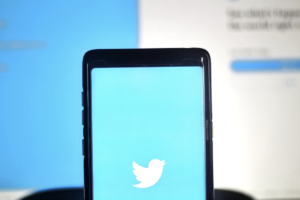
By Jerome Lau, Marketing Director at King’s Commercial Awareness Society
Elon Musk’ $44 Billion acquisition of Twitter has been thoroughly covered by media all around the globe over the past seven months, and the saga has finally ended with Elon on top, having dismissed the top executives, wiping the board and declaring himself the ‘chief tweet’, as sole director of the company while reversing Twitter’s IPO in the process. The effects of this takeover will have far-reaching effects on the future of Twitter, the wider public, and the markets that are linked to it.
Declarations made by Musk suggest that he intends to cut jobs upon taking control of Twitter, having told staffers that the business needed to “get healthy” and undergo a “rationalisation of headcount and expenses”. The staff of the company currently face the most instability in the short term, with Musk having asked senior staffers and advisers to draw up lists of workers to be cut, as reported by the Washington post.
The privatisation of Twitter resulted in a 64% premium over the price the Twitter stock was trading for before the Offer to acquire Twitter was disclosed on April 14, 2022. This transformation into a privately owned entity under Elon represents ultimate control over both the direction of the social media giant and which strategies to utilise moving forward.
Other digital content platforms like Snap, YouTube and Facebook are all showing signs of facing an advertising slump, following a pandemic-related boost to business as brands continue to curb their digital ad spending, which Twitter is debatably over-reliant on.
The takeover and its saga may have brought much instability to the company, as well as the product and most of all, it has affected the staff. However, Musk’s private management of Twitter coupled with his goals to make it less reliant on advertising as a form of revenue might just constitute the measures it needs to compete with its most intense competitor, TikTok, while overcoming the advertisement slump which impacts it immensely.
The larger concerns about the takeover revolve around Musk’s ideals of being a “free speech absolutist”, and his desires to turn it into a “town square” for opinions and ideas to float around. The concern here lies within the context of Twitter being a commonly used political platform, where most of the controversies surrounding the platform having to do with Twitter’s relationship with governments.
Musk’s idealistic freedom of speech may come into conflict with the online speech laws that governments have proliferated. For example, multiple countries have passed rules to do with “fake news”, where platforms that do not comply will be banned, or a “right to be forgotten”, where embarrassing or demeaning content and information must be removed from online platforms. With Musk’s new Twitter, only time will tell how the looser rules on regulation and the removal of bans will impact the political and financial scene.
In conclusion, like many other business ventures, it is important to think about the many dimensions that are impacted. Even though it can be easy to focus on the statistics, or the big numbers that come with these deals, it is important not to forget about the impact it has on the individual people who are affected by what happens.